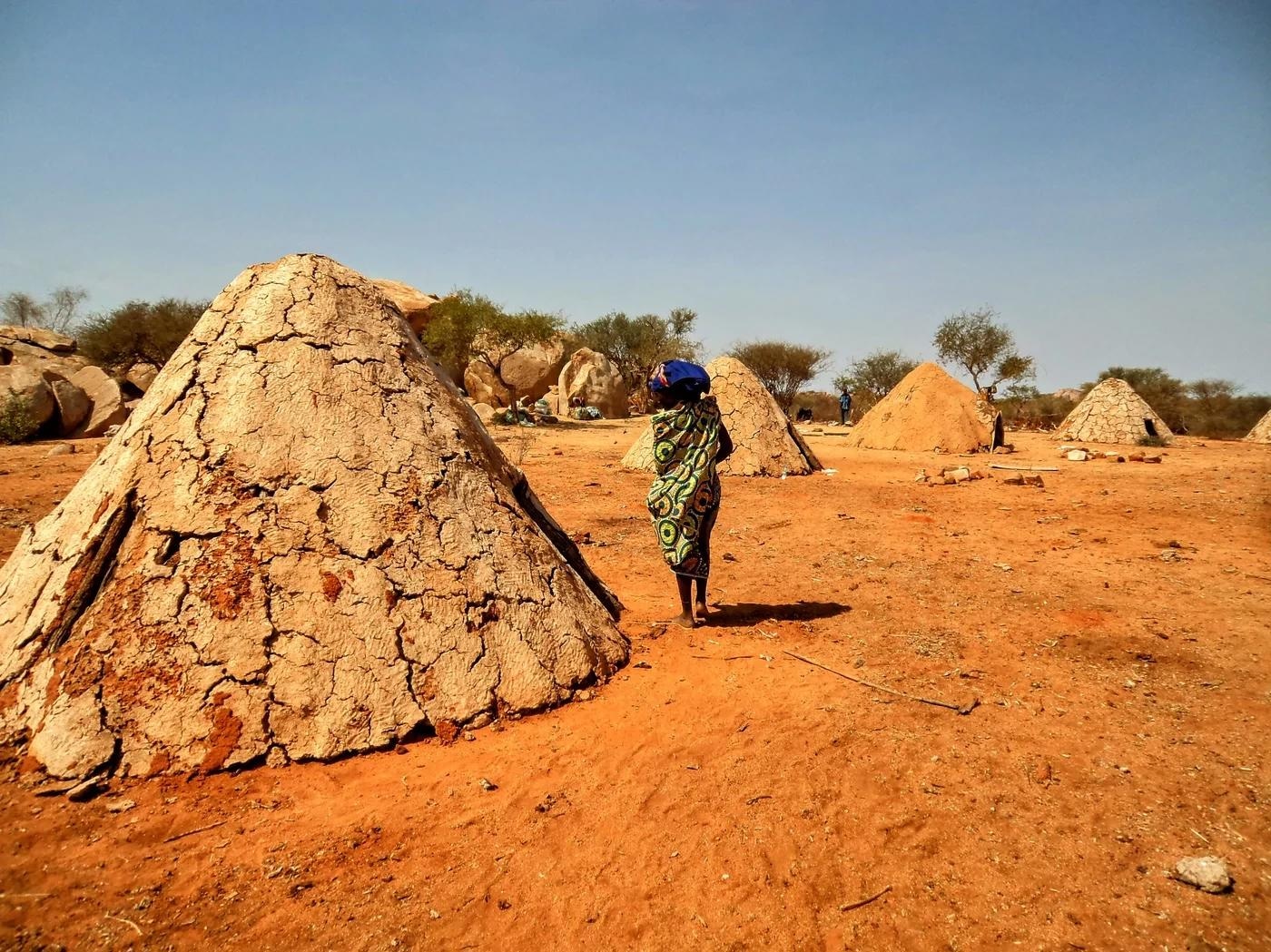Reviewed by Danielle Ellis, B.Sc.Sep 25 2023
An international research team from the University of Bern in Switzerland, the University of Porto in Portugal, and the Max Planck Institute for Evolutionary Anthropology in Germany employed ancestry decomposition techniques to uncover a distinct and highly divergent genetic ancestry within mixed populations residing in the Angolan Namib desert.
 Kuvale settlement in Virei, Namibe province of Angola. Image Credit: ©Sandra Oliveira
Kuvale settlement in Virei, Namibe province of Angola. Image Credit: ©Sandra Oliveira
This unique genetic heritage provides valuable insights into the distribution of genetic diversity in the larger southern African region before the emergence of agricultural practices.
Africa is the cradle of humanity and boasts the greatest genetic diversity among all continents. Although studies involving ancient DNA have shed light on aspects of Africa's genetic makeup before the advent of agriculture, challenges related to DNA preservation have restricted human understanding.
In search of insights, a team of researchers from the Portuguese-Angolan TwinLab embarked on an expedition to the Angolan Namib desert. This remote, ethnically diverse area served as a meeting point for various traditions, making it a promising location to study modern populations and uncover genetic clues.
“We were able to locate groups which were thought to have disappeared more than 50 years ago”, adds Jorge Rocha, a Population Geneticist from Centro de Investigação em Biodiversidade e Recursos Genéticos (CIBIO, University of Porto) who headed the fieldwork, together with Angolan anthropologists Samuel and Teresa Aço from the Centro de Estudos do Deserto (CEDO).
Among the communities the team encountered was the Kwepe, a pastoral group that used to speak a language known as Kwadi.
Kwadi was a click-language that shared a common ancestor with the Khoe languages spoken by foragers and herders across southern Africa.”
Anne-Maria Fehn, Linguist, Centro de Investigação em Biodiversidade e Recursos Genéticos
Anne-Maria Fehn participated in the fieldwork and was able to interview what may well be the last two speakers of Kwadi.
Rocha, whose research focuses on southern African population history, adds, “Khoe-Kwadi languages have been linked to a prehistoric migration of eastern African pastoralists.”
Furthermore, the research team reached out to Bantu-speaking communities representing the prevalent pastoral tradition in southwest Africa. They also engaged with marginalized groups whose historical roots have been linked to a distinct foraging tradition, setting them apart from the neighboring Kalahari peoples. Interestingly, these marginalized groups were believed to have lost their original language over time.
Modern DNA Research Can Complement Ancient DNA Studies
The latest study conducted by the team reveals that the people living in the Angolan Namib desert exhibit significant genetic differences compared to other contemporary populations. Moreover, within the Angolan Namib population, there is also a notable degree of genetic structure and differentiation among various groups or subpopulations.
In agreement with our previous studies on the maternally-inherited DNA, most genome-wide diversity segregates according to socio-economic status. A lot of our efforts were placed in understanding how much of this local variation and global excentricity was caused by genetic drift – a random process that disproportionally affects small populations – and by admixture from vanished populations.”
Sandra Oliveira, Researcher, University of Bern
Sandra Oliveira collaborated with these populations while pursuing her doctoral and postdoctoral studies under the guidance of Rocha and Mark Stoneking at CIBIO and the Max Planck Institute for Evolutionary Anthropology (MPI-EVA) in Leipzig, Germany.
The team's research highlighted that in addition to the substantial influence of genetic drift, which played a significant role in creating variations among neighboring groups with varying socio-economic statuses, the descendants of Kwadi speakers and the marginalized communities in the Namib Desert still carry a distinct Pre-Bantu genetic heritage that is exclusive to populations originating from the Namib desert region.
“Previous studies revealed that foragers from the Kalahari desert descend from an ancestral population who was the first to split from all other extant humans. Our results consistently place the newly identified ancestry within the same ancestral lineage but suggest that the Namib-related ancestry diverged from all other southern African ancestries, followed by a split of northern and southern Kalahari ancestries,” adds Mark Stoneking, who contributed to the earliest genome-wide studies on southern African foragers and participated in this study.
This newfound data allowed the researchers to piece together detailed accounts of interactions that arose as a result of the migration of Khoe-Kwadi-speaking pastoralists and Bantu-speaking farmers into southern Africa. Furthermore, this study underscores the significance of modern DNA research in regions that have not received as much attention but possess rich ethnolinguistic diversity. Such research can complement ancient DNA studies and provide valuable insights into the profound genetic history of the African continent.
Source:
Journal reference:
Oliveira, S., et al. (2023). Genome-wide variation in the Angolan Namib Desert reveals unique pre-Bantu ancestry. Science Advances. doi.org/10.1126/sciadv.adh3822.